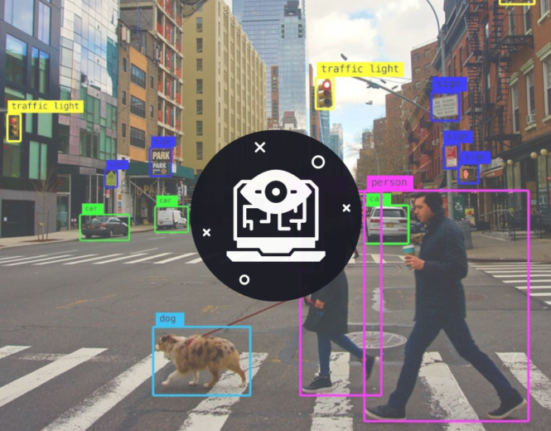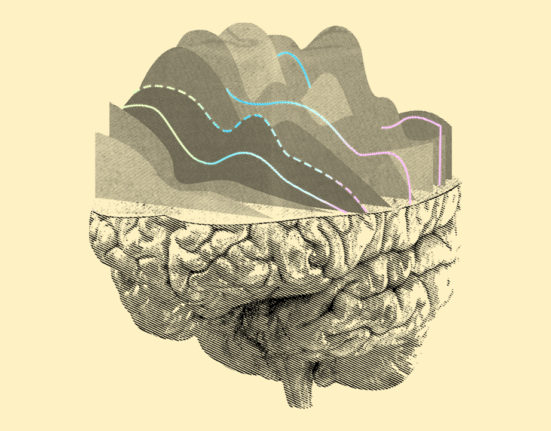We’re living in the age of controversial and sensationalized deep-tech. Computer vision can now recognize faces and even activities, reusable rockets are making space travel “affordable”, and blockchain technologies are on track to revolutionize digital interactions and business like never before.
And then there’s Quantum computing.
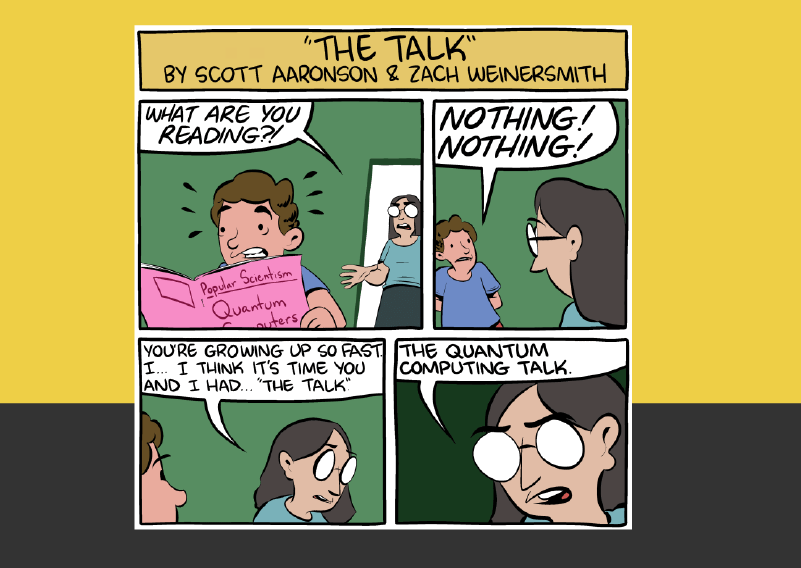
There’s rarely a technology as sci-fi and nearly unbelievable as quantum computing. Spoken in hushed tones of suspicion and awe, nobody expected it to have practical utility until several decades later.
But it’s here, and in the world of data and AI, it can have an unprecedented impact on the way we do business in the very near future.
Here’s why this should matter to you.
From pentium to quantum — a (very) short intro
A classic, transistor-based computer uses bits to process information. These can have two states, 0(off) and 1(on) — which is why classical computing is also known as binary computing.
But a quantum computer doesn’t use binary. Instead of bits, it uses qubits (or quantum bits) — subatomic particles that, under extremely well-controlled environments, follow the laws of quantum physics. This gives them some interesting properties.
Firstly, a qubit follows superposition, which means that instead of being in on/off states, the particle can be both 0 and 1 at once — existing as a complex combination of both. This is analogous to a coin while it’s spinning – where you only know the state once it falls. With algorithms built the right way, it is possible to harness this property for highly effective computing.

Secondly, qubits in a system are entangled, meaning that the state of each is dependent on the others. Measuring any one qubit gives us some information about the other qubits in the system, and changing the state of one qubit immediately changes the paired qubit as well. This leads to much faster computation — both in terms of speed and computing states in parallel.

Because of this, qubits can be part of multiple computations at once, making quantum computers capable of extreme parallel computing.
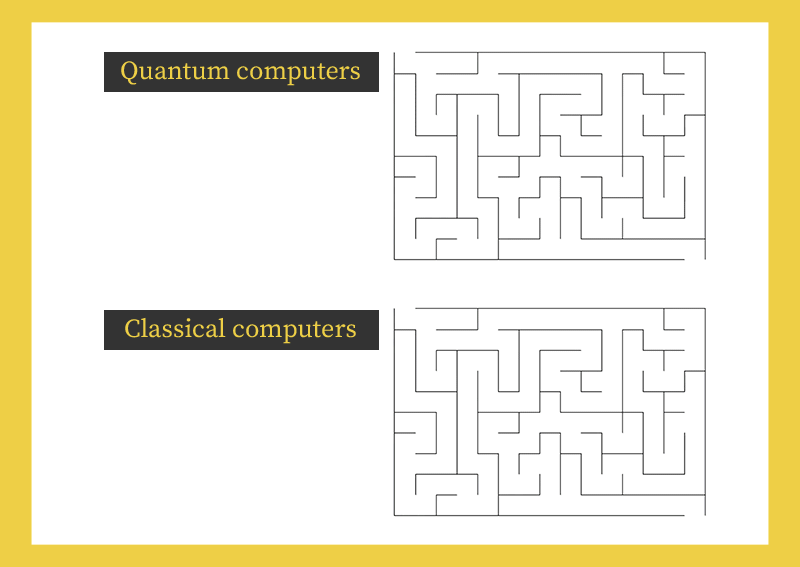
While classical computers can only explore one possible solution at a time, quantum computers can explore multiple problems and solutions at the same time.
Quantum supremacy (and inferiority)
Peter Shor introduced Shor’s algorithm in 1994 — a quantum algorithm that utilized the properties of entanglement and superposition to find prime factors of large numbers. This algorithm shortened the solution time from billions of years on a classical computer to a few days on a quantum one.
Quantum computers cannot solve undecidable problems and aren’t great at a number of computing functions — so they won’t help you manage excels any faster (But can it run Crysis? … probably not). However, when it comes to problems involving massive calculations that classical computers and their algorithms could take years to solve, quantum computing absolutely blows it out of the park.
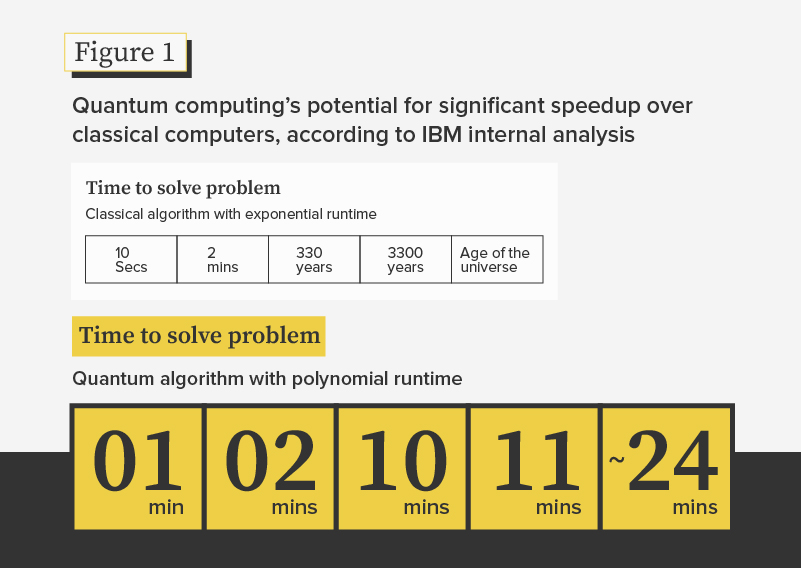
For algorithms like boson sampling, the number of samples a quantum computer generates in 20 seconds is the same as a classical supercomputer would need 600 million years to compute.
Give me the meat — how will this impact business?
Quantum computing enables better market research, stronger predictive models, better product testing, and more, in any business area involving problems of exponential complexity. Anything that relies on statistics or simulations is a good candidate, for instance, many types of combinatorics problems, which are focused on combining sets of objects in different ways.
The main consideration is whether your data includes enough variables to make it worth the time of a quantum computer.
Think about banks and investment companies wanting to determine and balance investment risk. Getting such computations right requires you to include more variables and have very large sets of data. That’s why this is a perfect problem for quantum computing — it excels at this kind of calculation.
If your business falls in a category that faces problems of this complexity, then there’s a good chance that quantum computing could boost your bottom line.
Logistics
Businesses face massive challenges in trying to optimize their supply chain to reduce costs and improve customer satisfaction. The pandemic further emphasized the need for businesses to have a strong and flexible supply chain.
Anyone familiar with the travelling salesman problem knows that dynamic route optimization is a complex challenge. Millions of data points need to be accounted for, including warehouse location, traffic conditions, and more. And the more data points there are, the more possible outcomes there are that need to be evaluated — often running into billions of unique paths.

With 10 destinations, there can be more than 350k roundtrip permutations and combinations. With 15 destinations, the number of possible routes could exceed 87 billion.
Even with approximation algorithms, classical computers don’t have the computing power to solve an NP-hard problem like this with the speed that modern businesses require.
Quantum computing algorithms (or hybrid quantum and classical systems) could be used to model all the known variables and arrive at the most optimized route, helping businesses lower costs and increase efficiency.
Financial Markets
Quantum optimization algorithms can help with modelling financial markets and identifying ideal trading decisions. Other instances where quantum computers could have an impact include credit scores, arbitrage, and the development of derivatives.
(A lot of these problems are some version of the travelling salesman problem)
At the moment, banks and financial institutions deal with these by imposing artificial limits that make them easier to manage and solve. Despite this, current methods, such as the Monte Carlo simulation model, are very slow when it comes to simulating more complex scenarios.
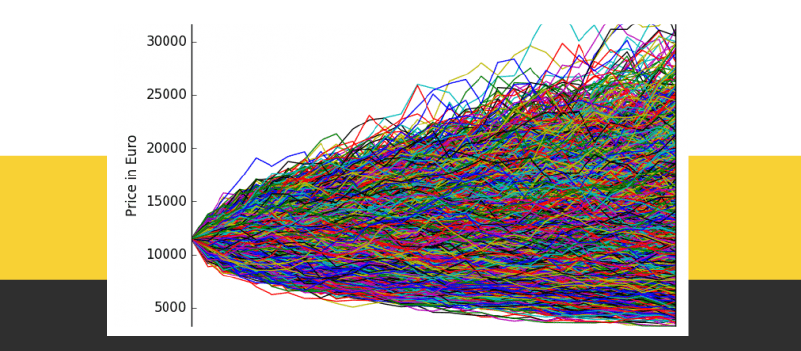
With the capacity to include more variables and significantly more data, quantum computers can explore a wider range of possibilities and help reveal better insights, creating more opportunities for profit.
Machine Learning
Machine learning (ML) often involves the processing of large volumes of data to build algorithms. Sufficiently large databases can help algorithms make better decisions, predict trends, personalize user experiences, or increase convenience for users.
Of course, more learning data means a much longer processing time.
Quantum algorithms can give today’s AI a massive boost. Multiple studies have demonstrated how quantum computing can supercharge machine learning algorithms to deliver accurate results faster than classical computing algorithms.
AI and ML could soon be realistically harnessed to address some of the biggest challenges facing humanity today, such as climate change and resource depletion, as well as aid R&D efforts across industries.
Manufacturing
Failure in manufacturing processes is expensive — especially now, with raw materials like Aluminium and Magnesium being at their all-time high costs. Manufacturers need to be able to explore different scenarios, predict where failure could occur, and reduce failure risk — this would help them increase efficiency, reduce downtime, and cut costs.
But analyzing data to predict failure is difficult — there can often be thousands of steps in the process and many different factors involved. Each factor exponentially increases the complexity of the computation — making this a good problem for a quantum computer to tackle.
While current quantum computers aren’t able to model these processes effectively, quantum-inspired algorithms have been combined with machine learning on classical computers to produce accurate results.
Pharmaceuticals & Chemical engineering
The biggest benefit of quantum computers is probably going to be in the area of pharmaceuticals, where they can help us examine incredibly complex systems — such as molecules and chemical reactions.
Developing new molecules and compounds has historically relied a great deal on luck since there are so many possible combinations and it is difficult to model these using existing technology.
Although computational chemistry does allow us to simulate some molecules, the complexities involved in this process mean that we can only model small molecules — the addition of even a single atom results in an exponential increase in the amount of data generated.
Today’s supercomputers might not have the power to run these simulations. But quantum computers will change that.

IBM Q performed a simulation of beryllium hydride in 2017, while in 2020, Google scientists modelled the electronic energy of a diazene isomerization using a quantum computer.
Being able to model molecules and chemical reactions would allow scientists to create all kinds of new chemicals, making advances in fields ranging from agriculture to medicine.
Pharmaceutical companies can use quantum computers to simulate molecules and see which kinds of drugs would have the desired effect, and then test those to see which ones work best for the human body. This could speed up the creation of new drug therapies by eliminating the trial and error methods in use today. Other applications could include creating compounds for more efficient batteries, solar cells, and more.
Cybersecurity
This is the big one, the one that government agencies around the world are concerned about.
Encryption standards that are widely used today, such as Elliptic Curve Digital Signature Algorithm (ECDSA) and the RSA (Rivest–Shamir–Adleman) algorithm, can be easily broken by a quantum computer. This is because quantum computers can easily solve factorization problems that such encryption relies on. As a result, any application that uses these could become compromised.
Think about that. Every password, encrypted message, and banking information – now out there for the world to see. Blockchain and cryptocurrency could be dead before they even begin.
But while quantum computers pose a major threat to blockchain technologies and cybersecurity in general, they also give us new, vastly more effective ways to secure data. Work is underway on many different fronts to create quantum-resistant methods of encryption, (for instance, quantum key distribution) some of which will be technologically impossible to hack due to the very nature of quantum laws.

Expect rapid development in the next few years.
Quantum computing is still in its infancy, even though it’s been around for more than 30 years. Quantum computers today are still rife with errors due to decoherence — vibrations, temperature fluctuations, electromagnetic waves, etc, can cause the system’s quantum properties to be lost. This is why quantum computers aren’t ready for the public yet — the processor needs to be kept in a supercooled state in a heavily controlled environment for it to be of any use.
So it‘ll be several years at least before we see these in the market. Companies like Google and IBM are at the forefront of quantum computing, and they’re only just beginning the process of developing commercial quantum computing systems, with Google promising to make the first commercial quantum computer available before 2030.
But as these computers become commercially viable, we’ll be able to supercharge our capacity for learning, modelling complex systems, and solving problems of a colossal scale.
And as we continue to discover newer applications across industries, quantum computers could usher in a technological revolution that’s just as big as the one that created today’s computers. The possibilities really are endless.


